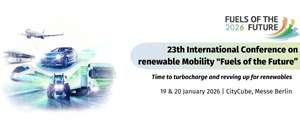Süd-Chemie builds largest 2nd gen plant
As from the end of 2011, this large-scale demonstration plant, located in the immediate vicinity of the new Bavarian BioCampus in Straubing, will produce up to 2,000 tonnes of bioethanol from agricultural waste, such as cereal straw.
The project comprises an investment volume of some €16 million and accompanying research projects amounting to approximately €12 million. These and additional related research projects will be subsidised by the Bavarian State Government and Germany’s Federal Ministry of Education and Research (BMBF) with approximately €5 million respectively.
The sunliquid process, which Süd-Chemie has been testing in a pilot plant since the beginning of 2009, is an innovative method of producing second-generation bioethanol in a cost-effective and energy-efficient manner.
To this end, cellulose-based plant residue, such as wheat straw or maize straw, bagasse from sugarcane or so-called energy crops, are initially converted into sugar constituents with the aid of enzymes generated using biotechnology.
In the case of Süd-Chemie´s process, not only the cellulose contained in plants, but also the so-called hemicellulose can be converted into ethanol, making it possible to increase ethanol production by up to 50% compared with conventional technology.
Furthermore, the enzymes needed to convert the cellulose can be optimised depending on the original raw materials used and produced directly on the spot in each production plant. This guarantees an optimal enzyme supply, being both highly efficient and cost-effective.
Süd-Chemie´s demonstration plant located in Straubing will represent a scaled-down version of the entire integrated manufacturing process required to convert cellulosic plant residue into bioethanol.










